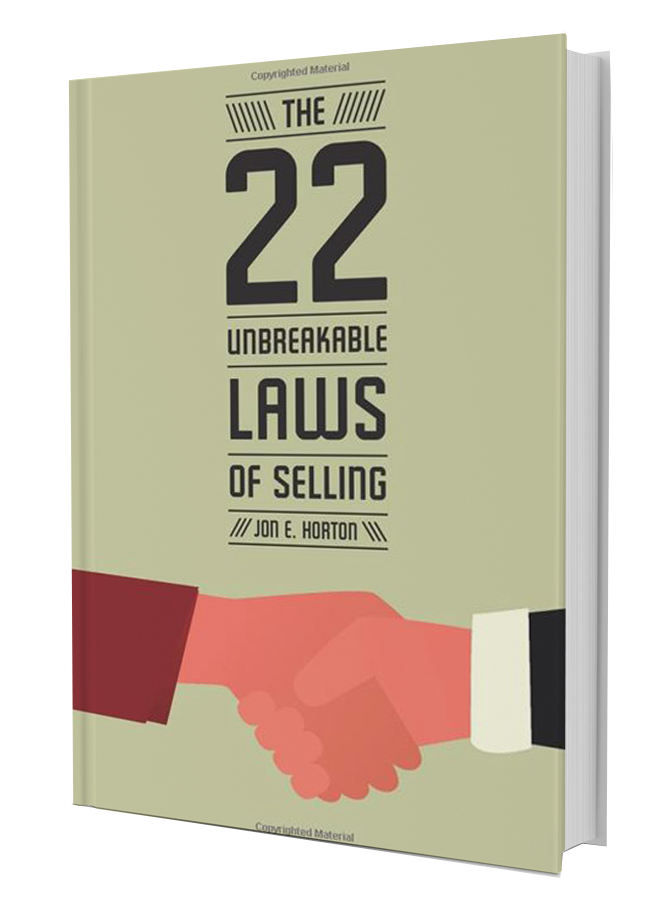Freebies, trinkets, spiffs, comps. They can range in price from cheap to very expensive. But, regardless of what they are called or how they are valued, most businesses provide their sellers with gifts to be passed along to ‘special’ customers. This is common practice.
Also common, unfortunately, is the absence of any meaningful discussion of protocols for this sort of gift-giving. What must a client do to qualify as ‘special’? Should new prospects get freebies? How and when should customer gifts be presented?
Managers and sellers alike seem to assume (there’s that ugly word) the answers to these questions are intuitive. I disagree and I devoted a chapter in my book to The Law of Gifts. As you read through the following real-life stories, you may decide that chapter should have been titled, The Law of Unintended Consequences.
Through some sort of barter arrangement, the company I was selling for acquired a handful of 7-day Hawaiian vacations for two. As a top biller, several key customers were on my account list so my manager handed me one of the trips with instructions to give it to a “special” client. I chose a big-spending customer who politely thanked me and enjoyed the free vacation with his wife. As frequently happens, my relationship with the client ultimately morphed into a genuine friendship. Only then did he feel comfortable enough to share his perception of that gift. In his opinion, my company’s ability to hand out expensive premiums signaled that he was over-paying and he seriously considered cancelling his contract with us.
As a sales manager, I had access to box seats for our market’s NBA team. When the Lakers (the Showtime era) came to town, I invited a good client who turned out to be a huge basketball fan. So, when the Celtics (the Bird era) visited, I invited the same customer who, coincidentally, had nearly doubled his spending with me. We enjoyed a Pistons (the Bad Boys era) game together again. But, when the Lakers came back to the market, I invited a new client to join me. Two hours before tipoff, the first customer called me, asking where we were going to meet for the game, voicing the expectation I had created. I lost that client within 60 days.
One of my account executives was having a hard time getting the first appointment with an important (female) buyer. He decided that the gift of one of our company’s stylish shirts might help break the ice so he dropped one off at her office along with his business card. I can’t print the words she used when she called me to complain. It is enough to report that she was certain my seller was mocking her generous figure with the size small shirt he delivered.
During my first appointment with a new prospect, I noticed an obviously expensive cigar cutter on his desk. Somewhat presumptively, I picked up a couple of premium cigars (about $9.00 in 1985) and offered him one during our second meeting. “Excellent choice,” he said while nodding appreciatively. “And very thoughtful of you. I like to indulge myself on the patio at my club. Why don’t you join me this afternoon?” I did and this became a ritual we repeated monthly throughout our relationship.
I’m certainly not extolling the virtues of tobacco use – I only share this vignette for the obvious irony of how an inexpensive token gift can deliver longer lasting results than premium merchandise. Your personal experience may be similar or opposite from mine. More likely, you haven’t given it much thought and that’s my goal – to get you thinking.
The Law of Gifts can be summarized with two final thoughts:
- Let’s be honest. The real point of client gift-giving is to extract some strategic value from customers. As such, this exercise deserves the same careful consideration as pricing and other service elements.
- Discerning clients may accept goodies but they will still demand superior service. So, successful sellers will rely on good business practices and only use gifts to enhance already solid customer relationships.
Jon E. Horton is the author of The 22 Unbreakable Laws of Selling available in both paperback and Kindle versions from Amazon.com. For more of his blogs, please visit www.JonEHorton.com. Comments to Jon@JonEHorton.com.
Last updated:
Dec 17, 2013

